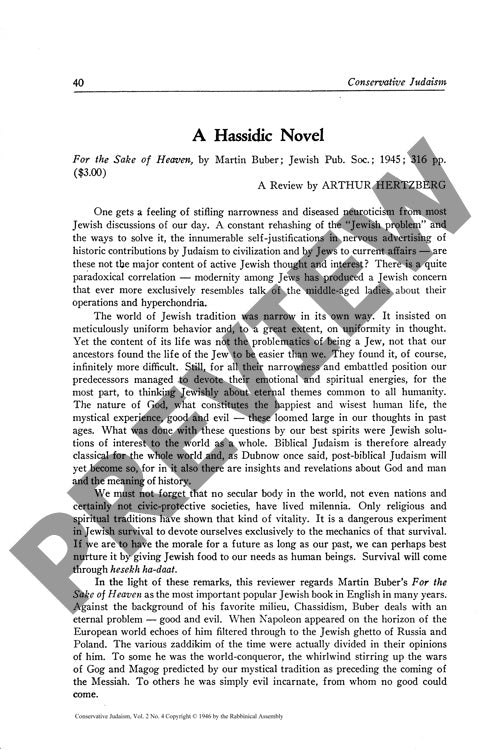A Hassidic Novel Review of for the Sake
Couldn't load pickup availability
In 1945, as Jewish communities grappled with unprecedented questions of survival and identity, Martin Buber crafted a novel that reached beyond immediate crises to probe timeless human dilemmas. "For the Sake of Heaven" transforms a historical moment—the divergent responses of two Hasidic masters to Napoleon's rise—into a meditation on good, evil, and human agency in divine redemption. The Seer of Lublin's embrace of Napoleon as a potential messianic catalyst clashed with the Yehudi of Pshysha's categorical rejection of using evil means for holy ends, embodying a tension that resonates far beyond its 19th-century setting. Through traditional Hasidic literary forms—tales, parables, and teachings—Buber constructs a philosophical framework that contrasts Jewish mystical optimism about human redemptive potential with Greek tragic fatalism and Christian concepts of original sin. While modern Jewish discourse often fixates on survival and self-justification, Buber's work demonstrates how traditional Judaism engaged universal human themes through a distinctively Jewish lens, offering a compelling model for contemporary spiritual renewal that transcends parochial concerns.

More Information
-
Physical Description
-
Publication Information
Published
ISBN
-
Publication Credits
Arthur Hertzberg

